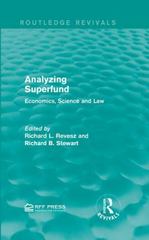Question
Part 1 My name is Vivian, and I am 20 years old. I am an Arizona native, born in Mesa and living in Gilbert. As
Part 1
My name is Vivian, and I am 20 years old. I am an Arizona native, born in Mesa and living in Gilbert. As I near the completion of my associate's degree in business, I plan to continue my studies at ASU and obtain a bachelor's degree in business law. After completing my undergraduate studies at the University of Arizona, I plan to earn my Juris Doctor, take the bar exam, and obtain an MBA. Currently, I am working at General Nutrition Centers (GNC) as a part-time associate and have been there for a year. I also volunteer for a foundation called Brighten A Day for four years now. In my volunteer work, I make inspirational cards for kids and elderly patients in hospitals. I love writing kind cards for people and giving hope or comfort. While I am taking this course for my degree, I also believe it is critical to have a thorough understanding of the topic since taxes, interest rates, wealth, and inflation are all influenced by economics.
I took an economics class during my sophomore year, and it piqued my interest since it gave me insight into the world and provided a framework for understanding it. I also recently took ECN211, which piqued my interest as I learned a new world of economics with topics such as unemployment, supply and demand, and gross domestic product. Personally, I like learning about interest rates and the loanable funds market because they are critical to our lives. For the past five years, I have been taking online courses. I began studying online during my junior year of high school and have found it to be a much more beneficial educational avenue. A schedule is one of the most important aspects of online learning. It can really help you to stay organized and complete your work if you create a schedule, figure out due dates, and estimate how long it will take to finish a particular task. It is also a good idea, to begin with the most challenging assignments if they take some time to complete.
Part 2
Throughout the video, the economic situation in different countries is shown fascinatingly and in various ways. On his first day in Frankfort, the gentleman exchanged 50 dollars for 36 euros and said he would have earned only 30 euros in 2008. He also noted that the eurozone crisis has decreased demand for euros, which has led to the euro depreciating against other currencies, like the dollar. Japanese people prefer to pay their bills with large bills instead of credit cards; holding large amounts of cash results in money leakage, which results in a lower money multiplier. Philippine per capita income is about one-tenth of the U.S., and it has a big cellphone market. The gentleman points out that the Canadian government leveraged fiscal policy to create a spotlight on the city's airspace and culture. It was interesting to see how each country has used its strengths to grow its economy in this video and displayed their differences. Also, it was neat to see how certain currents can be handled, favored, or transferred.
Form an insightful, personal, meaning response to this post.
Step by Step Solution
There are 3 Steps involved in it
Step: 1

Get Instant Access to Expert-Tailored Solutions
See step-by-step solutions with expert insights and AI powered tools for academic success
Step: 2

Step: 3

Ace Your Homework with AI
Get the answers you need in no time with our AI-driven, step-by-step assistance
Get Started


